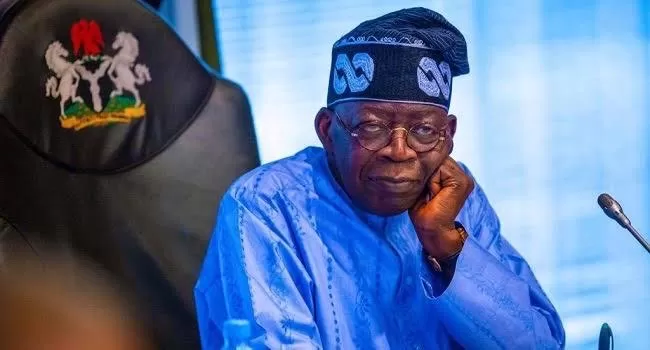Tinubu’s First Year: Nigeria’s Debt Surges Amid Economic Challenges

President Bola Tinubu’s administration has borrowed N20.09 trillion through various instruments in its first year, marking a significant increase from the N9.275 trillion borrowed in the previous year. This borrowing includes N13.235 trillion through Treasury Bills and N350 billion through Sukuk Bonds. The total national debt has risen to N122 trillion as of March 2024, with a debt-to-GDP ratio of 61.51%, a level not seen since before the country received debt relief in 2006. The Central Bank of Nigeria (CBN) has also reported that the FG spent $15 billion on debt servicing over the past five years. These financial developments have sparked discussions and concerns about the sustainability of Nigeria’s debt levels and the impact on the economy.
Economic Challenges:
Tinubu’s first year in office has been characterized by rising public debt, soaring inflation and interest rates, a weakened Naira, and declining performance of the manufacturing, agriculture, and telecom sectors. The Lagos Chamber of Commerce and Industry (LCCI) has highlighted these challenges in its “Scorecard for the Tinubu Administration After One Year.” Inflation has risen from 22.22 percent in April 2023 to 33.69 percent in April 2024, recording more than a 10 percent leap in 12 months. The manufacturing sector has experienced fluctuations in its growth rates, reflecting both challenges and opportunities. The agriculture sector has been impacted by insecurity, fuel subsidy removal, and consistent exchange rate depreciation, which increased the cost of fertilizer and other input costs.
Debt Concerns:
Nigeria’s total public debt has hit N97.34 trillion ($108.22 billion) at the end of 2023, compared to N87.38 trillion ($113.42 billion) at the end of June 2023. This represents an increase of about N10 trillion. The total public debt stock increase is reflected in domestic and external debt. The Debt Management Office (DMO) has stated that this was mainly due to new domestic borrowings by the Tinubu government to finance the deficit in the 2024 Appropriation Act and disbursement by multilateral and bilateral lenders.
Conclusion:
Tinubu’s first year in office has been marked by significant economic challenges, including a surge in public debt, rising inflation, and a weakened currency. The sustainability of Nigeria’s debt levels and the impact on the economy remain major concerns. The government’s ability to address these challenges and implement effective policies to stimulate economic growth and development will be crucial in the coming years.







